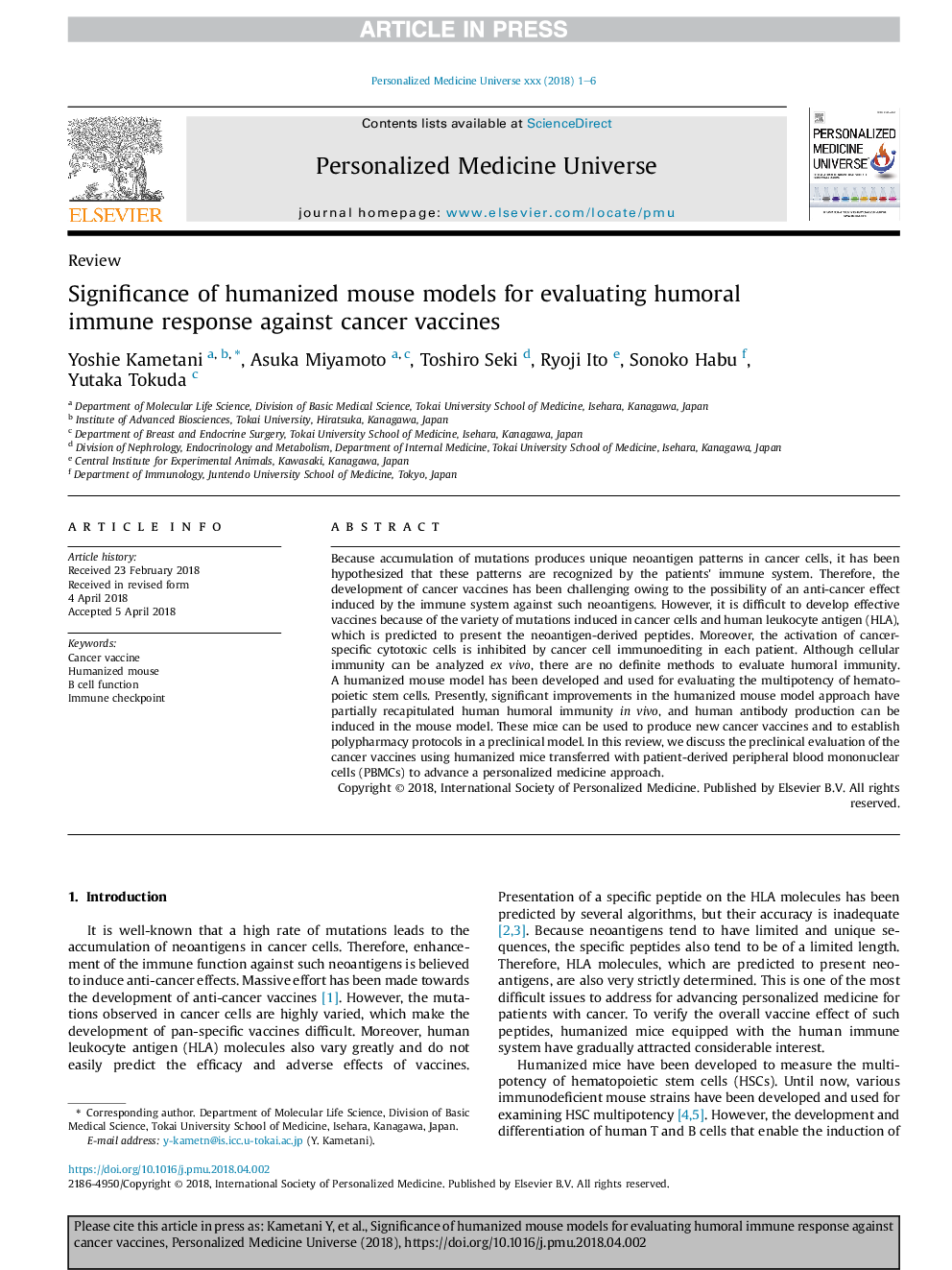| کد مقاله | کد نشریه | سال انتشار | مقاله انگلیسی | نسخه تمام متن |
|---|---|---|---|---|
| 8742077 | 1592467 | 2018 | 6 صفحه PDF | دانلود رایگان |
عنوان انگلیسی مقاله ISI
Significance of humanized mouse models for evaluating humoral immune response against cancer vaccines
ترجمه فارسی عنوان
اهمیت مدل های موش های انسانی برای ارزیابی پاسخ ایمنی هومورال به واکسن های سرطانی
دانلود مقاله + سفارش ترجمه
دانلود مقاله ISI انگلیسی
رایگان برای ایرانیان
کلمات کلیدی
موضوعات مرتبط
علوم پزشکی و سلامت
پزشکی و دندانپزشکی
ایمونولوژی، آلرژی و روماتولوژی
چکیده انگلیسی
Because accumulation of mutations produces unique neoantigen patterns in cancer cells, it has been hypothesized that these patterns are recognized by the patients' immune system. Therefore, the development of cancer vaccines has been challenging owing to the possibility of an anti-cancer effect induced by the immune system against such neoantigens. However, it is difficult to develop effective vaccines because of the variety of mutations induced in cancer cells and human leukocyte antigen (HLA), which is predicted to present the neoantigen-derived peptides. Moreover, the activation of cancer-specific cytotoxic cells is inhibited by cancer cell immunoediting in each patient. Although cellular immunity can be analyzed ex vivo, there are no definite methods to evaluate humoral immunity. A humanized mouse model has been developed and used for evaluating the multipotency of hematopoietic stem cells. Presently, significant improvements in the humanized mouse model approach have partially recapitulated human humoral immunity in vivo, and human antibody production can be induced in the mouse model. These mice can be used to produce new cancer vaccines and to establish polypharmacy protocols in a preclinical model. In this review, we discuss the preclinical evaluation of the cancer vaccines using humanized mice transferred with patient-derived peripheral blood mononuclear cells (PBMCs) to advance a personalized medicine approach.
ناشر
Database: Elsevier - ScienceDirect (ساینس دایرکت)
Journal: Personalized Medicine Universe - Volume 7, July 2018, Pages 13-18
Journal: Personalized Medicine Universe - Volume 7, July 2018, Pages 13-18
نویسندگان
Yoshie Kametani, Asuka Miyamoto, Toshiro Seki, Ryoji Ito, Sonoko Habu, Yutaka Tokuda,
